![]() — หน้าแรก — เกาะติดข่าว
— หน้าแรก — เกาะติดข่าว
ข่าวเศรษฐกิจและธุรกิจประจำสัปดาห์
-
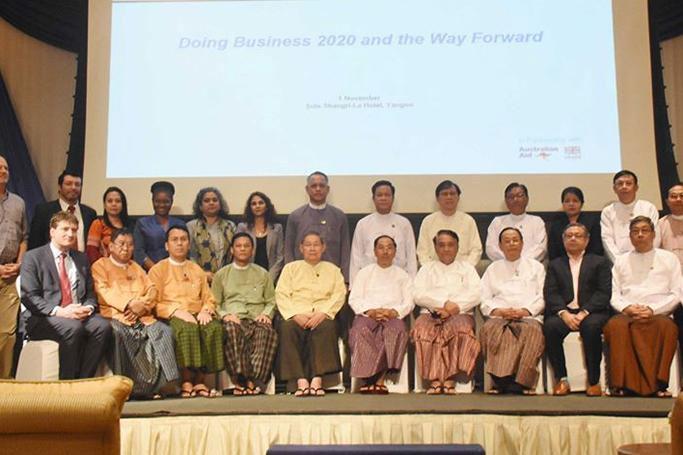
Myanmar Government will be added two more sectors in ranking “Ease of Doing Business” index next year
Team leader of Progress of Ease of Doing Business Ranking and Deputy Minister of Economics and Commerce Aung Htoo said that they would add two more sectors in ranking ‘Ease of Doing Business’ next year. The two more sectors are government tender bidding process and labour rights. Currently, the index is based on sub-indices of starting a business, dealing with construction permits, getting electricity, registering property, getting credit, protecting investors, paying taxes, trading across borders, enforcing contracts and resolving insolvency. But in the coming year, government’s tender and the bidding sector will be considered accurately. -
Chinese Government is trying to rebrand delayed projects in Myanmar under the banner of its Belt and Road Initiative
YANGON—China is rebranding and repackaging dormant or delayed projects in Myanmar under the banner of its Belt and Road Initiative, many of whose projects lack transparency and consultation with affected communities, according to the latest policy brief by a Netherlands-based research and advocacy institute. Stephanie Olinga-Shannon, a planning and evaluation coordinator for the Transitional Institute (TNI) who also researches Chinese foreign policy for the organization, said, “Rather than a ‘grand strategy’, the BRI is a broad and loosely governed framework of activities seeking to address a crisis in Chinese capitalism.” “Almost any activities, implemented by any actor in any place can be included under the BRI framework and branded as a BRI project in Myanmar,” Olinga-Shannon said. The BRI allows Chinese state-owned enterprises (SOEs) and provincial governments to promote their own projects to pursue profit and economic growth, she added. -

The Myanmar Times News's data comparison on Myanmar’s economy among other tiger cub economies
Back in the 1960s, Singapore, Taiwan, South Korea and Hong Kong were able use cheap labour and tax incentives to draw a huge influx of foreign direct investments and technological know-how from the west. Between the early 60s and 90s, growth quickly soared, to an average of 10 percent at the peak, according to the World Bank, propelling those economies, now dubbed by some economists as the four Asian Tigers, from developing to developed, high-income nations by the early 21st century. Then came the so-called Tiger Cubs, comprising the emerging Asean economies of Indonesia, Malaysia, the Philippines, Thailand and Vietnam, which benefited from trade and investment with the four Tigers since the 1980s. Driven by e-commerce and digital technologies, Indonesia is among the fastest growing economies in the region, with total GDP of more than US$1 trillion. This is followed by the Thai and Malaysian economies, with total GDP exceeding US$500 million and US$350 million, respectively. -
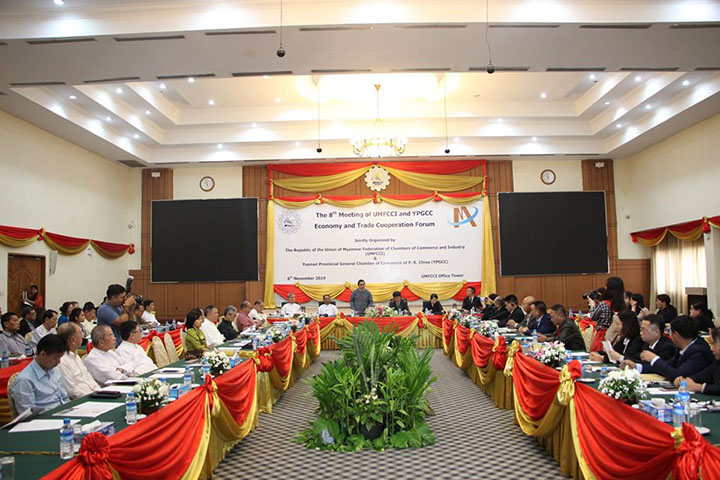
UMFCCI and Yunnan Provincial General Chambers of Commerce (YPGCC) hold the 8th meeting on economy and trade cooperation forum in Yangon
The Union of Myanmar Federation of Chambers of Commerce and Industry (UMFCCI) and Yunnan Provincial General Chambers of Commerce (YPGCC) jointly held 8th meeting held and an Economy and Trade Cooperation Forum during the 8th meeting of two organizations at the former’s office in Yangon on 6 November. UMFCCI Vice President U Ye Min Aung said trade cooperation was going on for more than ten years after UMFCCI and YPGCC signed a MoU. Bilateral economy and trade developed with much effect on bilateral economy, trade and investments so it was a very beneficial meeting, he added. YPGCC Vice Chair Mr Wang Wei said the forum was expected to become a platform for discussing policy matters for developing businesses between the two countries, exchange economic information and for economic cooperation. This was the 8th meeting where papers on border trade and transport sector, food and agriculture sector, transformation to digital economy and innovation in news and information technologies were read while discussions were held under a question and answer session. Later in the afternoon -
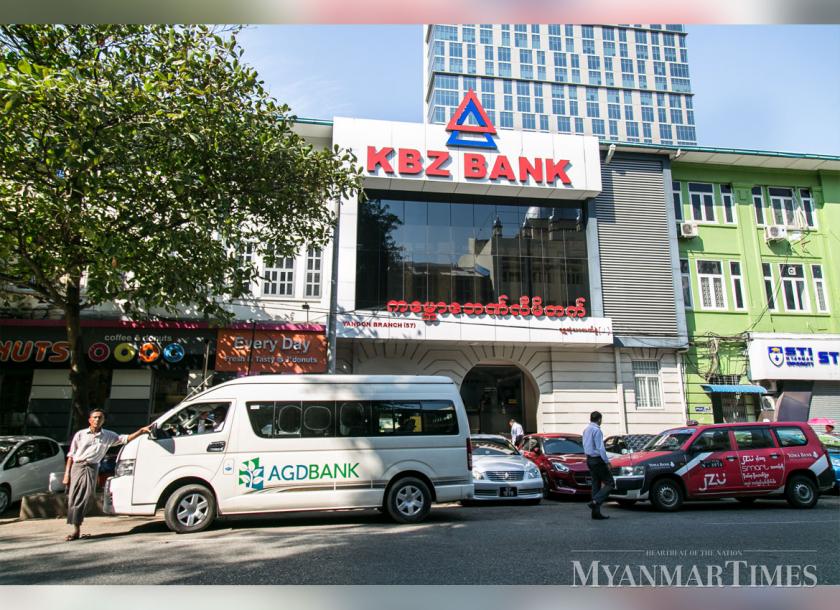
Daw Aung San Su Kyi’s Government announced the first round of foreign bank licencing
Myanmar will initiate the first round of foreign bank licencing under Daw Aung San Suu Kyi’s government, aimed at further opening up an industry that was formerly closed off to international players. The central bank announced that banks can apply for either a branch licence - which allows a range of wholesale banking activities - or a subsidiary licence, which permits both wholesale and, from January 2021 onwards, onshore retail banking services. A branch licence and subsidiary licence require a minimum paid-in capital of US$75 million and $100 million respectively. The statement did not specify the timeline for the latest round of licencing, but the central bank will be sharing requests for Expression of Interest (EOI) with eligible banks in the coming months. -
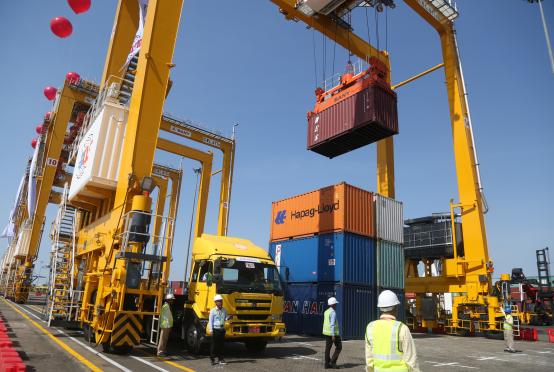
CMP businesses imported raw materials worth over $ 160 million in one month of this fiscal year which exceeded over USD $ 12 million when compared to the same period of last fiscal year
CMP businesses have imported raw materials worth over US$160 million over a month this fiscal year that started in October 1, exceeding over US$12 million compared to the same period of last fiscal year, according to data from the Ministry of Commerce. From October 1 to 25 in the current 2019-2020 fiscal year, CMP raw materials worth US$160.748 million while the amount of last year was US$148.588 million. So, this year's amount exceeded US$12.160 million. -
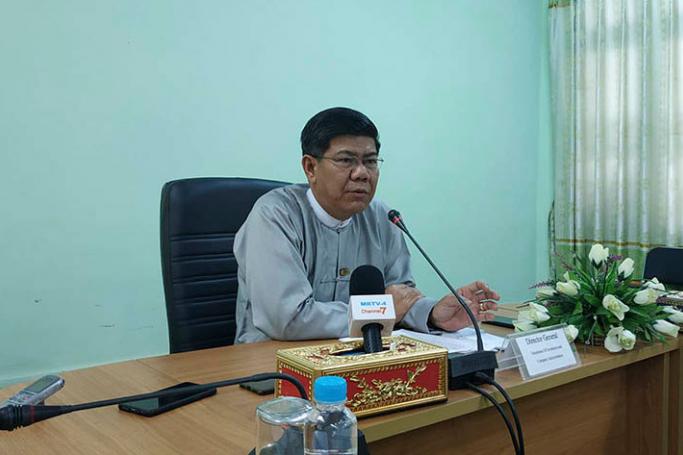
U Thant Sin Lwin refuted a report of South Korean investors plan to pull out their investment from Myanmar and invest in Bangladesh untrue
South Korean businesses in Myanmar will not be moving their operations to Bangladesh, U Thant Sin Lwin, secretary of the Myanmar Investment Commission (MIC), said on Wednesday. Based on statements by the Bangladesh Economic Zone Authority (BEZA) and Korea Industrial Complex Co Ltd (KIC), Bangladeshi news dailies recently reported that South Korean businesses invested in Myanmar wanted to move to Bangladesh. “There are no cases at all of South Korean investors returning MIC permits and moving out of Myanmar. In fact, interest among South Korean investors in Myanmar has been mounting,” U Thant Sin Lwin said. According to Bangladeshi papers, about 100 South Korean businesses in Myanmar wanted to move to Bangladesh due to shortcomings in industrial zones in the country. The newspapers appeared to be quoting a news source from the Bangladesh Economic Zone Authority (BEZA). The Bangladeshi news reports stated that Korea Industrial Complex Co Ltd (KIC), which is working on industrial zones of Myanmar, will establish such zones in Bangladesh. -
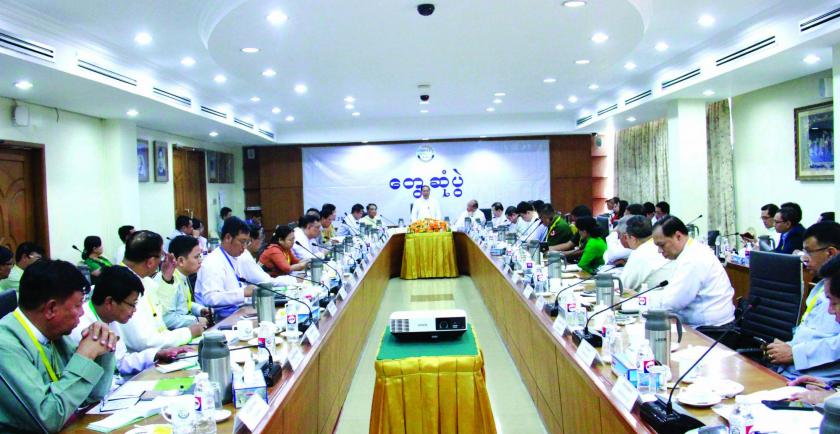
Myanmar seized around K 15 billion worth illegal imports in 13 months from the beginning of September 2018 until the end of September 2019
Myanmar has seized a total of K14.6145 billion worth illegal goods in 13 months, from the beginning of September 2018 until the end of September 2019, according to U Myint Swe, Vice President of Myanmar. “Actually, the amount is quite small. We are now working on measures to effectively control illegal imports,” he stated during his monthly meeting with local businessmen on October 19. Due to illegal imports, local small and medium enterprises are struggling to survive as they cannot compete with the imported goods in terms of price. Recently, the government has formed nine special task teams comprising intergovernmental agencies. -
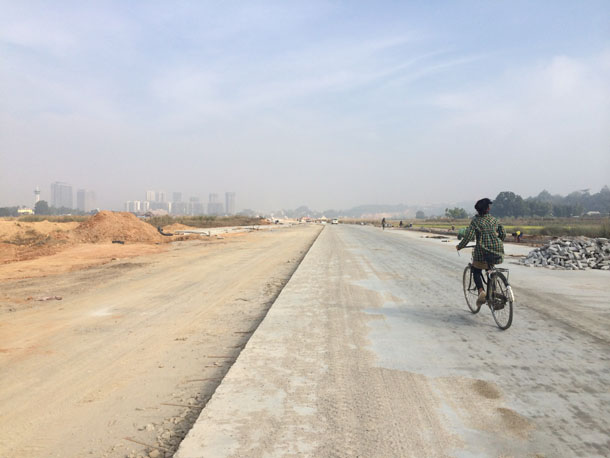
Muse Economic Zone will be started an implementation after signing the framework agreement with China
Muse economic zone, one of three Myanmar-China economic cooperation zones, will start an implementation after signing the framework agreement by China, said Deputy Minister Aung Htoo of the Ministry of Commerce. “China side is ready to do. Out of three zones, we will start Muse economic zone. The framework agreement has been sent to China for signing. If they agree it, we will start between Kyegaung and Hosaung in Muse. All of us are ready to do. Kyegaung has been already fenced but Hosaung has not been fenced. It will take three months. If the framework agreement is signed, we will start implementation,” said Deputy Minister Aung Htoo. In the establishment of Myanmar-China border economic cooperation, it is required to respect the line of demarcation of Myanmar and China. For not losing any territory is of great importance, said Union Minister Dr. Than Myint of the Ministry of Commerce. -
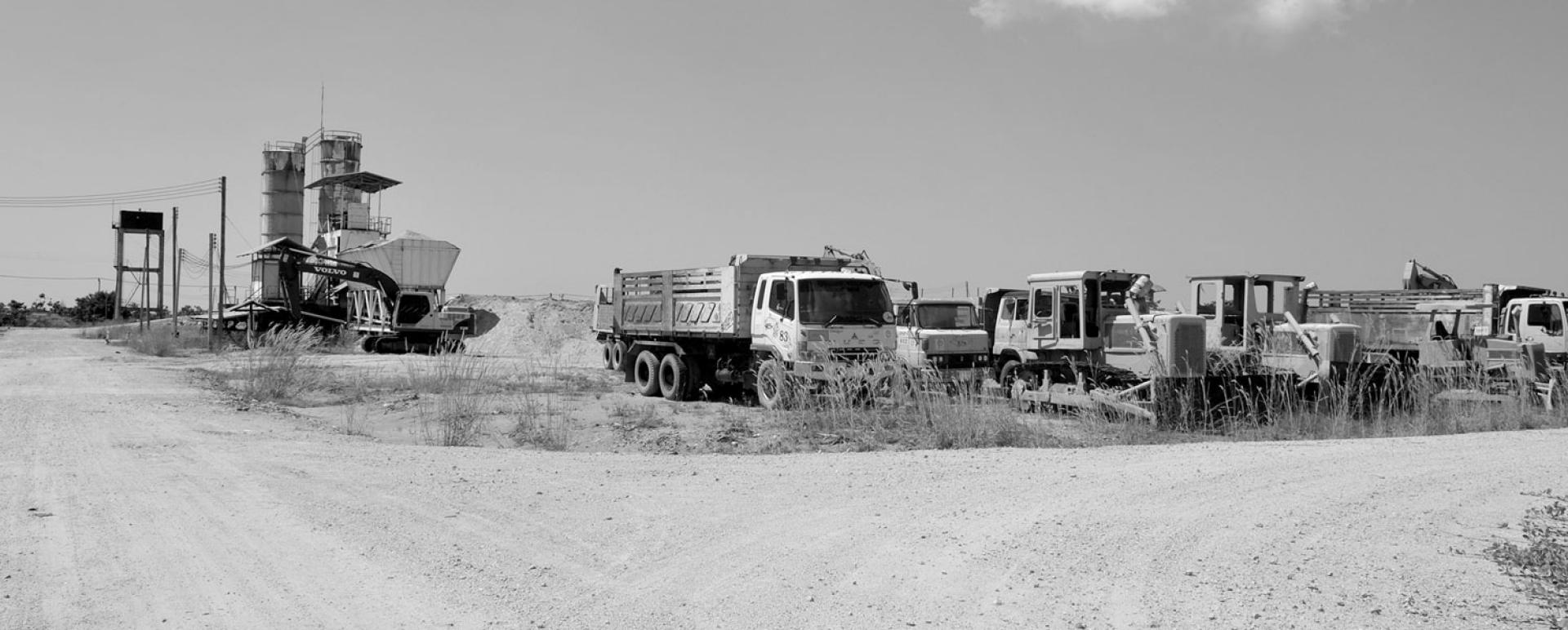
Japanese investors are keen to do business for the development of Tanintharyi Region including Dawei Special Economic Zone (SEZ)
YANGON- Japan is keen on businesses for the development of the whole Taninthayi Region including Dawei Special Economic Zone (SEZ) and are now carrying out research into the project, says Aung Htoo, Deputy Minister of Commerce. Despite plans that have been in development regarding the implementation of Dawei SEZ over a decade ago, it was delayed. Among the extant SEZs in Myanmar, Thilawa SEZ see the most development and is being implemented together with the Japanese government.
เกาะติดข่าว
Copyright © 2014 Business Information Center All Rights Reserved.







